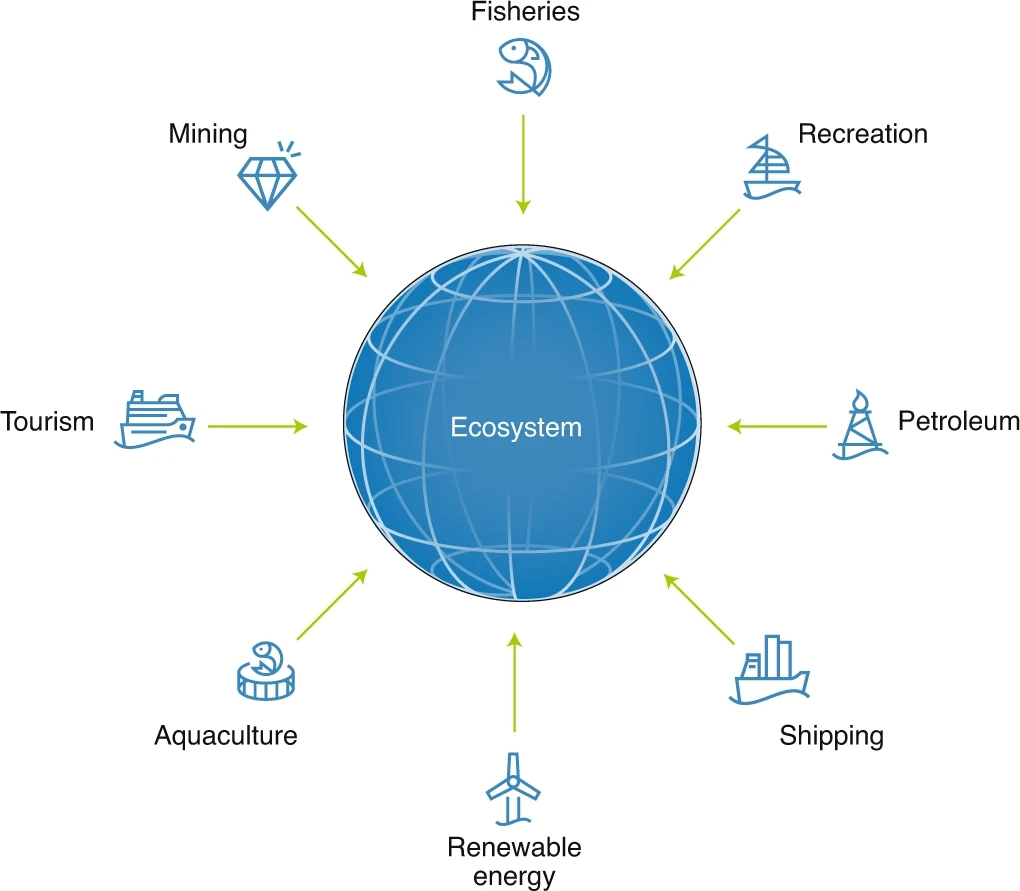Jan-Gunnar Winther, Minhan Dai, Therese Rist, Alf Håkon Hoel, Yangfan Li, Amy Trice, Karyn Morrissey, Marie Antonette Juinio-Meñez, Leanne Fernandes, Sebastian Unger, Fabio Rubio Scarano, Patrick Halpin & Sandra Whitehouse
Published in Nature Ecology & Evolution August 2020
The rapidly evolving ocean economy, driven by human needs for food, energy, transportation and recreation, has led to unprecedented pressures on the ocean that are further amplified by climate change, loss of biodiversity and pollution. The need for better governance of human activities in the ocean space has been widely recognized for years, and is now also incorporated in the United Nations Sustainable Development Goals. Even so, many challenges relating to the implementation of existing governance frameworks exist. Here, we argue that integrated ocean management (IOM) should be the key overarching approach—building upon and connecting existing sectoral governance efforts—for achieving a sustainable ocean economy. IOM is a holistic, ecosystem-based and knowledge-based approach that aims to ensure the sustainability and resilience of marine ecosystems while integrating and balancing different ocean uses to optimize the overall ocean economy. We discuss examples of IOM in practice from areas where preconditions differ substantially, and identify six universal opportunities for action that can help achieve a sustainable ocean economy.

Fig. The goal of IOM is to integrate and balance various ocean uses and environmental aspects to obtain a ‘healthy and wealthy’ ocean: long-term, sustainable use of ocean resources in ways that preserve the health and resilience of marine ecosystems and improve livelihoods and jobs, balancing protection and production. IOM brings together relevant actors from government, business, academia and civil society from the entire spectrum of ocean-related human activities (for example, fishing, recreation, petroleum, shipping, renewable energy, aquaculture, tourism and mining) to interact toward a sustainable future for our ocean environment. A key to successful IOM is the use of a knowledge-based and ecosystem-based approach. Stakeholder engagement and coordinated decision-making, particularly with ocean businesses, is another central aspect of successful IOM.
Winther, J., Dai, M., Rist, T. et al. Integrated ocean management for a sustainable ocean economy. Nat Ecol Evol (2020). https://doi.org/10.1038/s41559-020-1259-6.